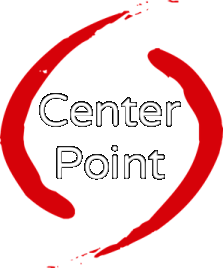Understanding Your Cycle of Conflict
The Cycle of Conflict
When our fears are activated, our defensive reactions ultimately lead to some form of conflict avoidance or inappropriate aggression. This blocks effective communication and consequently the issues of conflict remain unresolved, thereby perpetuating the Cycle of Conflict. Most of us are largely unaware of our fears, core issues, and negative beliefs and simply think our beliefs are the truth. (This person is mean and angry…, my spouse is …, I am…) This lack of awareness locks in the Cycle of Conflict and destines us to repeat these patterns of conflict with different people and situations.
You have very specific patterns of communication and conflict or conflict avoidance with those around you. These patterns are repetitive, habitual, and predictable. In communication with family and close friends, they know the kind of things you will say and do in certain situations, especially when you are emotionally triggered, and you know these same things about them because you all have seen each other act in repetitive and predictable ways many, many times in the past in various situations.
Imagine that your cycle of conflict is like a movie that you have seen five times. Every time you watch the movie, the same things happen at the beginning, in the middle and at the end of the movie. Repeating your Cycle of Conflict is like being in the movie ‘Ground Hog Day’ where Bill Murray relives the same day over and over again. In a similar fashion, we repeat our habitual Cycle of Conflict with different people and with different variations to our patterns of interaction over and over again until we learn the life lessons that help us to resolve these conflicts.
Your core fears about yourself, others, and the world determines the patterns of conflict in your life. These patterns are repetitive, habitual, and predictable. Exploring these patterns of behavior and interactions with your family and friends reveals the cycle of conflict that you have learned. These cycles of conflict form the basis of your current dysfunctions and relationship breakdowns. Understanding your current dysfunction and cycles of conflict and how they relate to your core issues is the first step to growth and change.
Exploring these patterns of interactions between you and your family, friends and associates reveals the patterns of conflict that you have learned from your past. This Cycle of Conflict forms the basis of your current dysfunctions, relationship problems and performance barriers. Understanding your current patterns of dysfunction and how they relate to your core issues is the first step to growth and change.
Exercise:
With a friend or on paper or your computer, describe the cycle of conflict in your life. If possible, include how the current breakdowns in your life or your current conflicts fit into your cycle of conflict.







